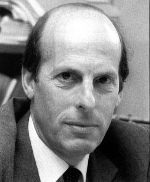
Michael Zander read Law at Cambridge where he took a Double First Class Honours Degree. He did a postgraduate year at Cambridge - and a further year at Harvard before working for a year in a Wall Street Law firm. He gave up a scholarship at Lincoln's Inn to become a solicitor. Articled with a City firm, he was admitted as a solicitor in 1962. He joined the London School of Economics as an assistant lecturer in the Law Department in 1963. There, he was appointed to a Chair in Law in 1977 and was Head of the Law Department there from 1984 to 1988. Throughout this period, from 1963 to 1988, Michael was also a distinguished Legal Correspondent of The Guardian - our sponsors tonight. He was also a regular broadcaster on legal issues on both radio and TV.
Michael's association with JUSTICE began in the early 1960s. His work there encompassed many areas of reform. In 1962 he was a member of the JUSTICE Committee which recommended the establishment of a Criminal Injuries Compensation Board. In 1971 he was the chief draughtsman of the JUSTICE report " The Unrepresented Defendant in the Magistrate's Court" - which urged the establishment of duty solicitor schemes.
During this period he naturally became a close and trusted friend of Tom Sargant - who was delighted to learn that Michael had been a school friend of Tom's son-in-law, Andrew Mackintosh.
Michael has also been a member of the Society of Labour Lawyers - for whom in 1969 he wrote much of the influential pamplet "Justice for All". this called for the establishment of Law Centres.
Bail decisions, civil and criminal costs, legal advice for prisoners, the unmet need for legal services - these are all are all subjects into which Michael Zander has conducted significant empirical surveys. In 1975 he published the pamplet "A Bill of Rights?" which called for the incorporation of the European Convention on Human Rights into U.K. law.
Michael Zander has always been in the forefront of reform movements. He has written many books - two of which, ("The Law Making Process" and "Cases and Materials on the English Legal System") are prescribed books in most law degree courses. Most judges, police officers and legal practitioners use his book on PACE - " The Police and Criminal Evidence Act." which is currently in its second edition.
Michael's book "A Matter of Justice" (1989) was described by Lord Devlin as " an indispensible guide for anyone who wants to know where we have got to on current topics."
He was an obvious choice to be a member of the Royal Commission on the criminal justice system for which he conducted the Commission's largest and only 'in-house' study - on the subject of his lecture tonight, the workings of the Crown Court.
 Press to return to the INDEX PAGE
Press to return to the INDEX PAGE